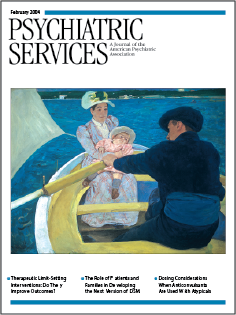Private Health Insurance Coverage for Substance Abuse and Mental Health Services, 1995 to 1998
Abstract
Four years of data from the National Household Survey on Drug Abuse were combined to examine the characteristics of underinsurance in a sample of privately insured Americans aged 18 to 64. Among these adults, 38 percent (45 million) reported not having behavioral health coverage or not knowing their coverage. Young adults aged 18 to 25, Hispanics, Asians, adults in the lowest income level, and less educated adults were more likely to be underinsured. Untreated addictive and psychiatric problems are costly to society. Underinsurance among socially disadvantaged subgroups deserves greater attention from researchers and policy makers.



